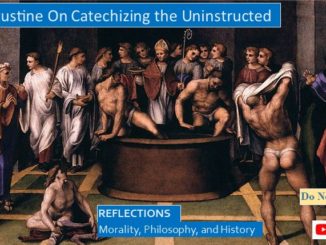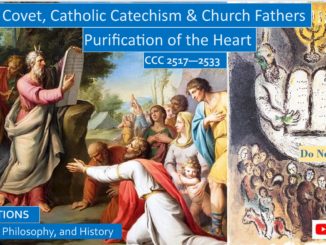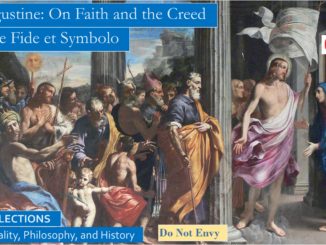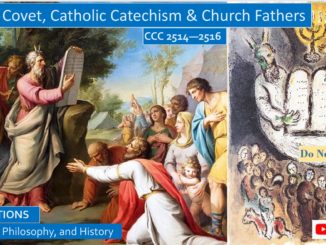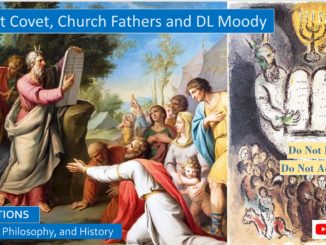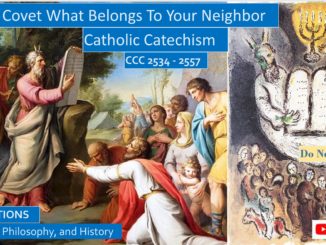
Catholic Catechism, Thou Shalt Not Covet thy Neighbors Possessions, CCC 2534-2540
The Catholic Catechism warns that coveting, or avarice, “is the root of theft, robbery, and fraud.” Both avarice and fornication are both sins of idolatry, when we stray from the love of our neighbor, we stray from the Love of our God, Love of God and love of neighbor are like two vines that twist around the same branch. Coveting “concerns the intentions of the heart, and summarizes all the precepts of the Law.” The commandment against coveting forbids the greed that gathers up earthly goods without limit, and the “avarice arising from the passion for riches.” “For where your treasure is, there your heart will be also.” […]

